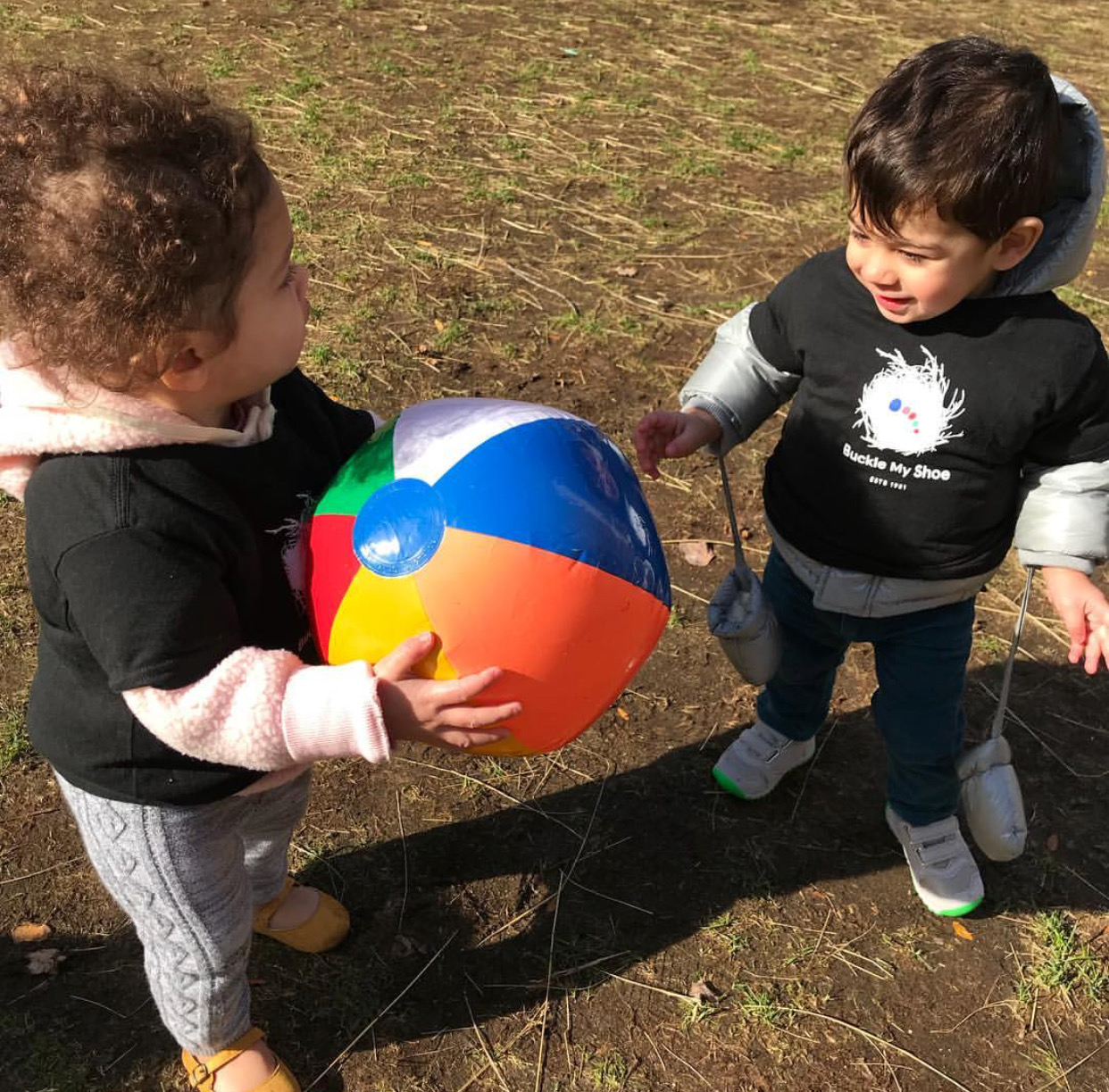“Our friends Antoine and Dillon resting their bodies in the cozy cove”
Social-Emotional:
There have been a lot of important conversations in our classroom. On a daily basis we provide children with daily routines, reasonable limits and exploration in order to help children with their social-emotional growth. We have also talked about emotions and what we should do whenever something happens in the classroom such as “____ seems to be sad, can we give __ a gentle touch to help her/him feel better” (while also showing them what a gentle touch is) or “___ seems to be upset, I think he/she would like to be alone. You can go in the cozy cove and read a book or hold on to a puppet.” As educators we label the emotions for children and show them that it is okay to feel angry, upset, frustrated, or silly as long as we express it in a safe way. We demonstrate children the different ways we can express and regulate our emotions.
“Our friends Dillon and Una giving each other a gentle hug”
During the course of this week we have also worked on patience! We have implemented projects that rely on patience such as waiting for our turn. We all know how difficult it can be to wait, therefore the wait isn’t long. We typically sing a song while we wait and explain to each child that when the song is over it will be his/her turn. After this we praise children for waiting so patiently, i.e., “wow ___ I love the way you’ve been waiting; I’m so proud of you, high five!”
“Our friends playing guitars while they patiently wait to wash their hands”
We have also been working on sharing, and saying please and thank you rather than just saying more or snatching things from a friend. For example, “____ if you want to have a turn you have to ask for it using your words, can you say ___ can I please play with it.” Children usually just say “please” and reach their hand out. The child then gives him/her the toy and we ask the other child to say thank you and of course we praise both children for using their words and sharing! If the other child decides not to share we usually say “__ he/she is still playing with it, so we have to wait. Should we play with something else while we wait?” We also give the other child a reminder that he/she has a certain amount of minutes to play with it, since the rest of our friends also want a turn.
“Our friends practiced sharing the ball this week, wow!”
These are some strategies that we have implemented in the classroom, please feel free to try them at home or sharing some strategies you do and would like us to incorporate in our classroom
Reminders:
BMS will be closed Monday, November 12 (veterans day)
Parent teacher conference will take place Friday, November 16
Enjoy your weekend!








